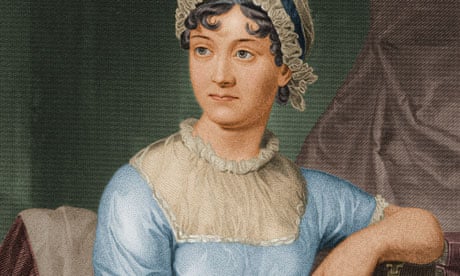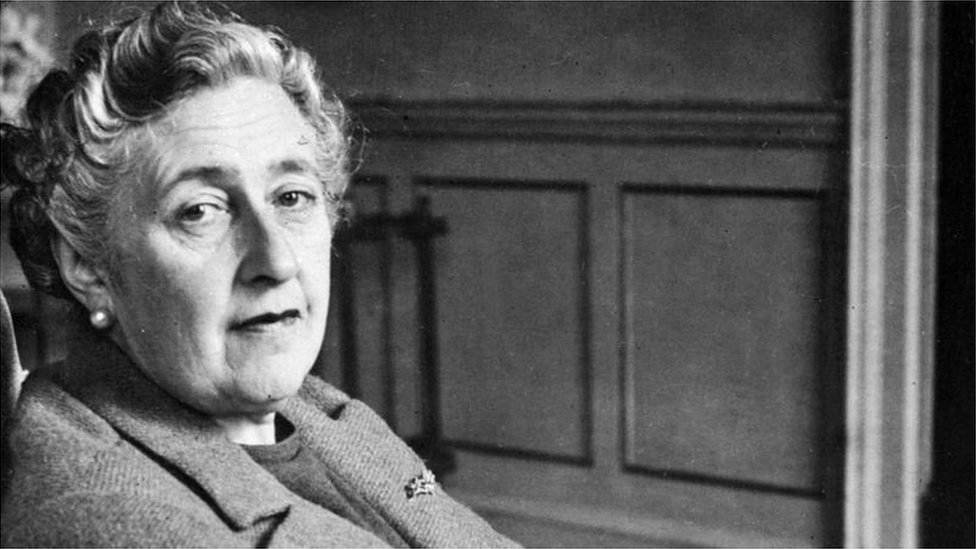Table of Contents
ToggleIntroduction
Fun Facts About Famous Authors You Didnt Know When we consider well-known writers, we frequently consider their amazing creations, literary accomplishments, and cultural and societal influence. In addition to their enormous literary achievements, authors such as George Orwell, Jane Austen, J.K. Rowling, and William Shakespeare are renowned for the engrossing worlds they have crafted.
But every well-known book has an equally fascinating backstory about the author, full of odd habits, bizarre encounters, and surprising information.
The lives and personalities of writers, who are frequently legendary individuals, provide their literary legacies an additional dimension of fascination. These interesting facts might offer a view into the lesser-known lives of some of the most well-known authors in the world, whether it’s a peculiar habit, an unexpected career, or an odd incident from their history.
We discover the vibrant personalities behind the words, the quirks that make them human, and the events that influenced their literary brilliance as we delve into these unexpected anecdotes.
1. William Shakespeare – The Man Behind the Myth
William Shakespeare is arguably the most famous playwright in history, and his works continue to be performed around the world today. But did you know that his personal life is shrouded in mystery, with many aspects remaining unknown? For instance, scholars have speculated about his education, with some even suggesting that he may have attended a grammar school in Stratford-upon-Avon, though evidence is scant.
One fascinating fact about Shakespeare is that he invented over 1,700 words in the English language. Terms like “swagger,” “lonely,” and “bedroom” all came from his inventive use of language. He also introduced countless phrases that are now part of everyday conversation, such as “break the ice,” “heart of gold,” and “wild-goose chase.”
Moreover, Shakespeare’s grave is famously marked with a curse. The inscription on his tombstone reads, “Good friend, for Jesus’ sake forbear, to dig the dust enclosed here. Blest be the man that spares these stones, and curst be he that moves my bones.” As a result, no one has dared to disturb his final resting place, and the mystery of his life continues to intrigue scholars and fans alike.
Read More
2. Jane Austen – A Novelist with a Secret Life
Jane Austen, the author of Pride and Prejudice and Sense and Sensibility, is one of the most beloved figures in English literature. Her keen observations of social behavior, marriage, and manners have stood the test of time. However, a lesser-known aspect of her life is her reclusive nature. Austen was known to be quite private, and very few of her personal letters and writings survive today.
Interestingly, Jane Austen never married, despite having many suitors and writing extensively about love and marriage. Some speculate that her decision to remain unmarried was influenced by a romantic rejection she suffered early in her life. Austen’s relationships and romantic inclinations have been the subject of much speculation, with scholars trying to decipher whether her novels reveal a glimpse of her own experiences with love.
One fun fact about Austen is that she wrote her novels in secret. She initially published her work anonymously, with only her family knowing of her literary pursuits. Sense and Sensibility was first published in 1811 under the pseudonym “A Lady.” It wasn’t until after her death that her true identity as the author became widely known.

3. J.K. Rowling – The Billionaire with a Humble Beginning
J.K. Rowling’s Harry Potter series is one of the most successful literary franchises in history, but her journey to success was far from easy. Before she became a billionaire author, Rowling was a single mother living on welfare in Edinburgh, struggling to make ends meet. In fact, Harry Potter and the Philosopher’s Stone was rejected by 12 different publishers before finally being picked up by Bloomsbury Publishing in 1996.
What is less known about Rowling is that she once considered suicide during the period of her life when she was experiencing severe depression. Despite these struggles, she went on to create the magical world of Hogwarts, a testament to her resilience and creativity.
Rowling has also said that the character of Harry Potter was inspired by a dream. She was on a train from Manchester to London when the idea for the boy wizard first came to her. She worked on the series for five years before the first book was finally published.
Another interesting fact is that Rowling is a secret philanthropist. She has donated millions to various charities, including her charity, Lumos, which focuses on supporting disadvantaged children. However, she does not publicize her charitable work, preferring to keep it private.
4. George Orwell – A Man of Controversy and Surprising Connections
George Orwell, the author of 1984 and Animal Farm, is known for his sharp political insights and critique of totalitarianism. Orwell’s life, however, is equally fascinating and filled with contradictions. For example, although he is often associated with left-wing political views, Orwell actually fought in the Spanish Civil War as a member of a socialist militia. His experiences during the war, and his disillusionment with the infighting among left-wing factions, influenced much of his later work.
Orwell’s real name wasn’t George Orwell. He was born Eric Arthur Blair, and he chose the pseudonym “George Orwell” in part because of his deep admiration for the River Orwell in Suffolk, England. It is said that the river represented to him a simpler, more peaceful time.
Another surprising fact is that Orwell’s 1984 was inspired by a visit to the Soviet Union, where he witnessed the repression and brutality of Stalin’s regime. The novel, which is often considered a warning against totalitarian governments, was written as a direct critique of the totalitarian nature of Soviet communism.
Orwell also had a passion for animals, and his famous novella Animal Farm was inspired by his love for the creatures he raised at his home in the countryside. Orwell’s experiences as a farmer, coupled with his observations of the world’s political landscape, led him to write one of the most enduring critiques of political power and corruption.
5. Mark Twain – The Writer with a Wide Range of Talents
Mark Twain, best known for The Adventures of Tom Sawyer and Adventures of Huckleberry Finn, was a man of many talents. Before becoming a full-time writer, Twain worked as a riverboat pilot on the Mississippi River, a job he enjoyed immensely. In fact, many of his most famous works, including The Adventures of Tom Sawyer, are set along the river, and the river itself became an iconic symbol in his writing.
One fun fact about Twain is that he was a highly successful inventor. Although best known for his literary work, Twain held several patents for inventions, including a self-pasting scrapbook and a “history-writing machine.” While none of his inventions made him a fortune, they showcase his inventive spirit and curiosity about the world.
Twain also had a fascination with language and dialects, which is evident in his writing. He was known for his mastery of vernacular speech, capturing the rhythms and cadences of everyday people in his characters’ dialogue. Twain once famously remarked, “The difference between the right word and the almost right word is the difference between lightning and the lightning bug.”
Read More
6. Agatha Christie – The Queen of Crime with a Mysterious Past
Agatha Christie is widely regarded as the “Queen of Crime” for her countless mystery novels, including Murder on the Orient Express and The Murder of Roger Ackroyd. However, Christie’s life was far from ordinary. In fact, she once disappeared for eleven days in 1926, sparking a nationwide manhunt. Christie was found in a hotel under a different name, suffering from amnesia, and the reasons behind her disappearance remain a mystery to this day.
Christie also had a passion for archaeology, which was influenced by her second marriage to archaeologist Max Mallowan. She often accompanied her husband on archaeological digs in the Middle East, and her experiences in this exotic setting found their way into several of her novels, including Murder in Mesopotamia and Death on the Nile.

What many people don’t know is that Christie holds the title for the best-selling author of all time, surpassing even William Shakespeare. Her novels have sold more than two billion copies worldwide, making her an undisputed icon in the world of mystery writing.
Conclusion
These fun facts only scratch the surface of the fascinating lives of some of literature’s most celebrated authors. From secret talents and quirky habits to remarkable achievements and unexpected connections, the lives of these writers are just as intriguing as the stories they’ve created.
Their struggles, triumphs, and idiosyncrasies remind us that behind every great book is a human being with a complex and multifaceted life. As we continue to read their works, we gain a deeper appreciation for their personal histories and the journeys that led them to create the timeless literature we love today.
Read More
FAQ
1. Why do authors often lead such interesting lives?
Many authors lead interesting lives because their experiences shape their writing, and their curiosity and creativity often drive them to explore a wide range of subjects and ideas. Writers are often observant, introspective, and open to new experiences, which adds depth and richness to their personal stories.
2. How do an author’s personal life and experiences influence their writing?
An author’s personal life and experiences play a significant role in shaping their writing. Many authors draw inspiration from their own struggles, triumphs, and the people they encounter in their lives. These experiences provide the raw material for the stories they create, making their works more relatable and compelling.
3. What are some surprising facts about famous authors?
Some surprising facts about famous authors include their secret talents, unusual careers, and personal struggles. For example, J.K. Rowling was a single mother on welfare before she became a billionaire, and Agatha Christie once disappeared for eleven days, sparking a nationwide search.
4. Why is it important to learn about an author’s life?
Learning about an author’s life can enhance our understanding and appreciation of their work. It allows us to see how their experiences influenced their writing and provides context for the themes and characters in their books. Understanding the person behind the words makes their literature more meaningful.
5. Do authors ever use their personal experiences as inspiration for their books?
Yes, many authors draw heavily from their own lives when creating characters, settings, and themes. Personal experiences, struggles, and emotions often serve as the foundation for the stories authors tell. Writers like Sylvia Plath, Ernest Hemingway, and Charles Dickens incorporated elements of their own lives into their works.















